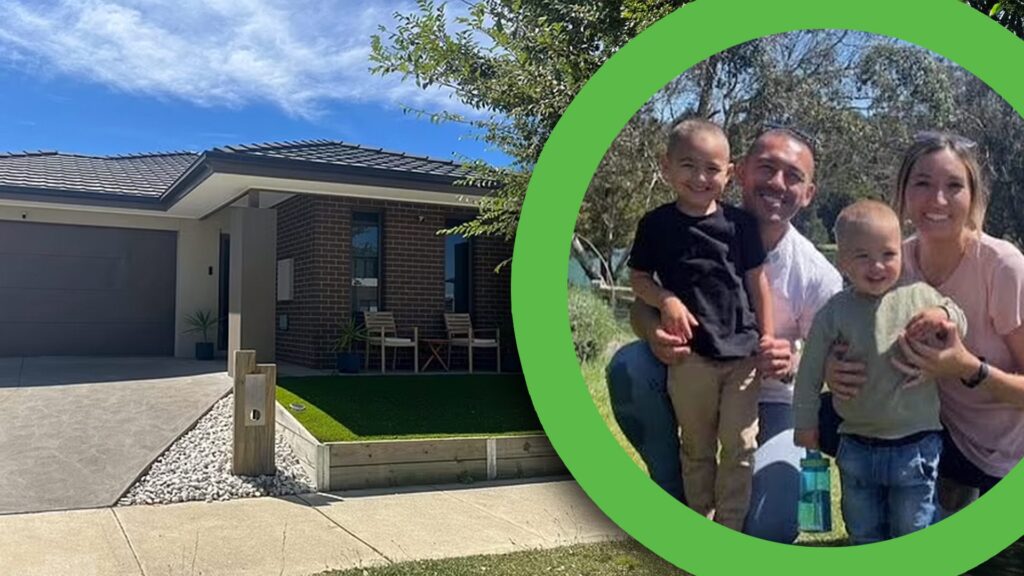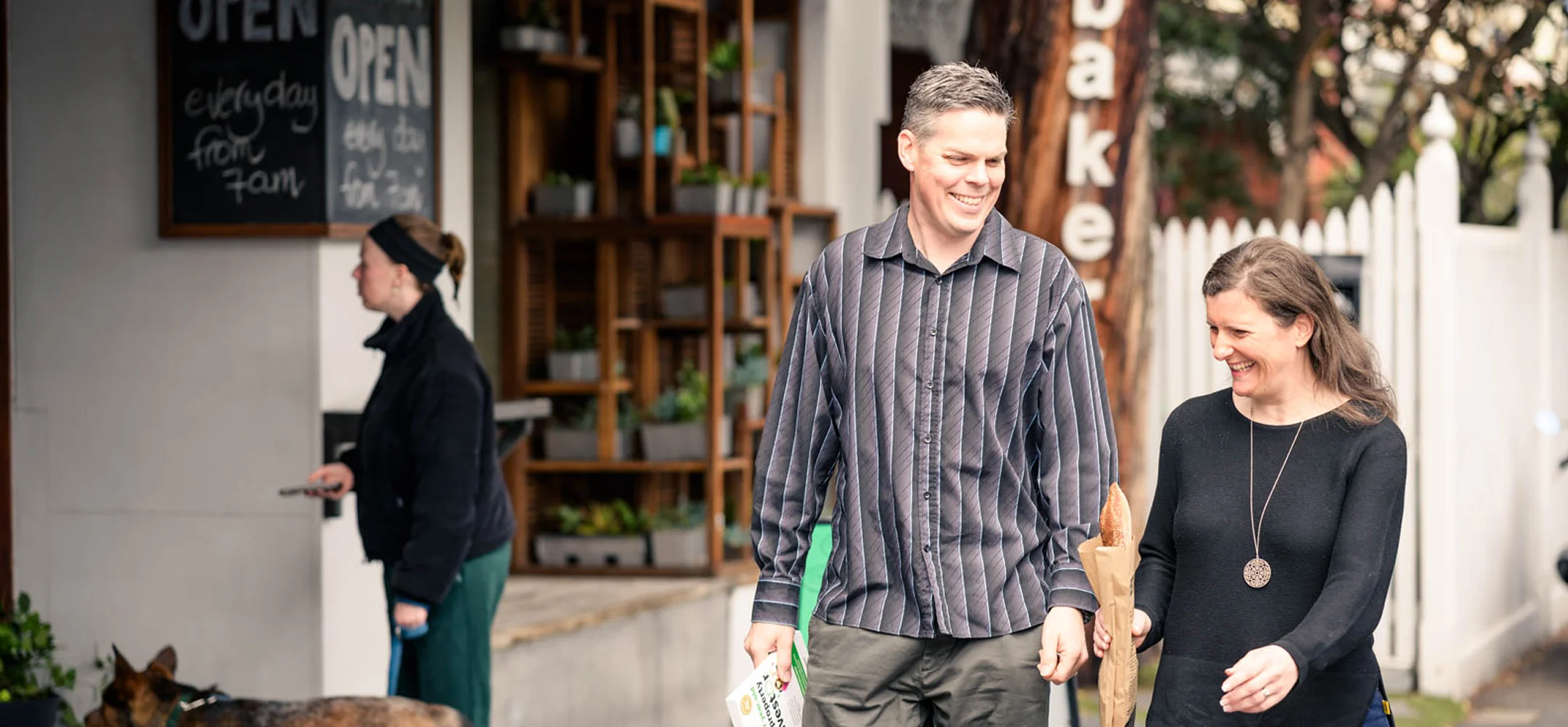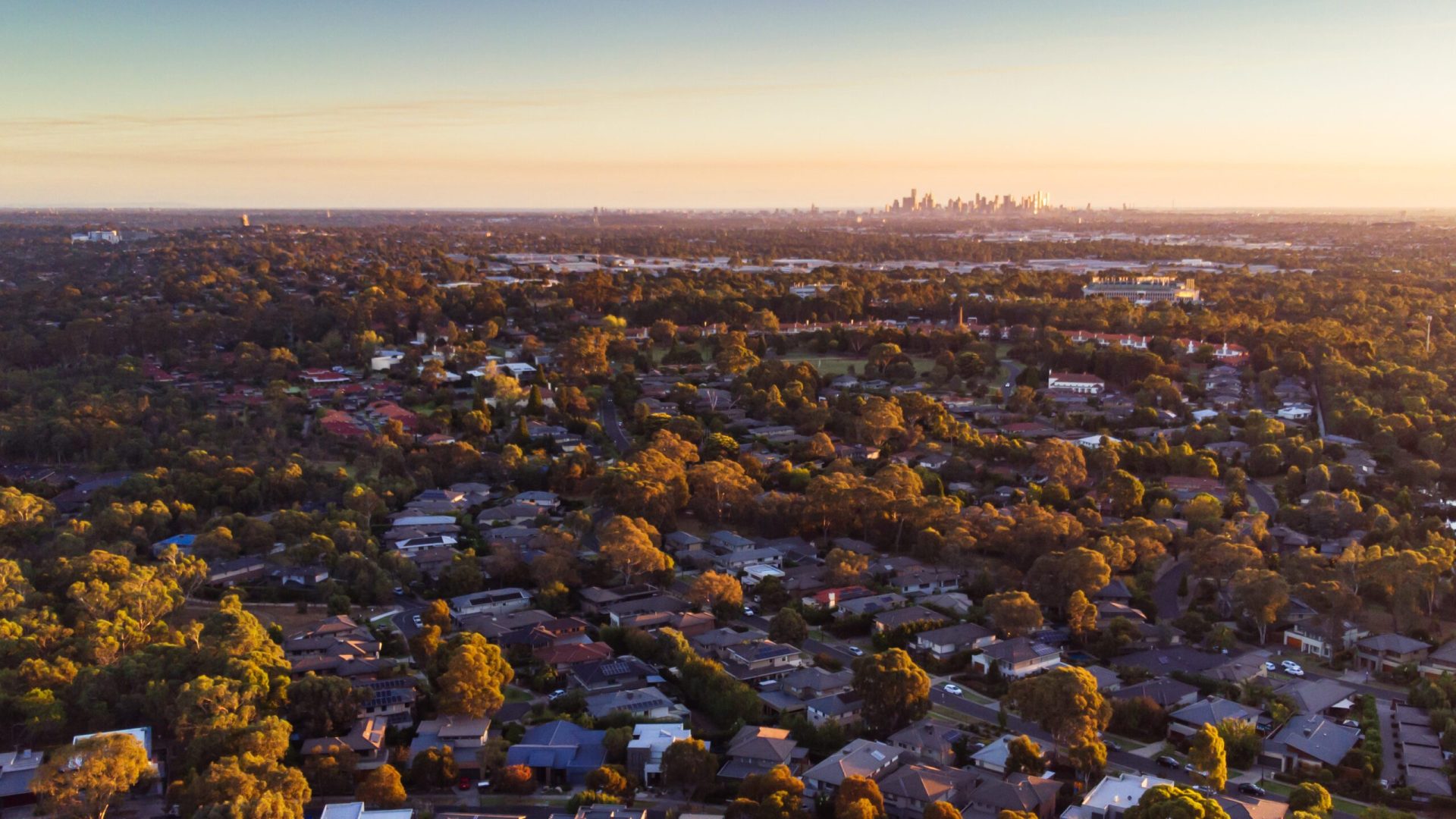Originally published via The Daily Mail.
A couple who own five properties share how an ‘unconventional’ method has helped reach their financial goals.
A mum and dad aged in their 30s who already boast a net worth of $2million have shared how they built a successful property portfolio in just 10 years.
Paramedic Leonard Price, 35, and his wife Larissa, 33, from Melbourne, bought their first block of land in 2014 to build their dream home.
They decided to sell up 10 months later because they felt like it ‘wasn’t the right fit’ for them and to their surprise, they made a $92,000 profit.
‘I thought “Holy s***, this is unbelievable!” All I did was put my name to a piece of land and pocketed $92,000,’ Mr Price told FEMAIL.
Since then the pair knuckled down for 10 years, strategically purchasing properties with the assistance of a buyer’s agent, and greatly increasing their wealth.
But there were rocky patches. The couple then purchased a townhouse – a move Mr Price admitted ‘wasn’t the best investment decision’.
Even though the couple owned the property for five years the value increased by only $70,000.
‘This made me realise that the best property investment strategy is to buy assets that increase in value – which is land, not apartments and townhouses,’ he said.
With assistance from their buyer’s agent, the couple continued their investment journey and utilised a ‘rinse, repeat’ cycle of targeting properties with large land packages.
The couple have now bought properties scattered in Melbourne, Brisbane, Perth and the Gold Coast.
All houses have four or five bedrooms, two bathrooms, a double garage and are brand new builds.
‘Property has helped us build wealth and increase our net worth a lot faster than we would have if we simply just saved and stashed our money away in a bank account,’ Mr Price said.
‘A lot of people are scared of debt, but debt can be great if you can leverage it to buy an asset that rapidly appreciates in value. Property is exactly that.
‘You borrow some money (incur a debt) to buy something that you don’t have the personal funds for at the time, but which you are supremely confident will go up significantly in value over time.’
It’s called using ‘lazy equity’
Michael Beresford, Executive Director of Investment for OpenCorp, said the couple had managed to achieve their empire by using the equity locked in their homes.
Mr Beresford, who has more than 20 years of experience in the industry, told FEMAIL that ‘lazy equity’ can help Aussies pay off or build investment portfolios that can crush their mortgages in 10 years.
‘Lazy equity is equity that is not being utilised,’ he said.
‘When you have owned your home for a few years and the value has increased or you have paid down debt, you now have available equity which is untapped.
‘If you don’t use this equity it lies dormant and will become “lazy equity”. (But) if you use this equity as your deposit and costs for an investment property it can begin working for you.’
Mr and Mrs Price have taken this strategy and run with it – and luckily it’s paid off.
Good and bad tenants and a single regret: Mr and Mrs Price’s experience
The couple earn a combined salary of $200,000, but if money is tight Mr Price can pick up some extra shifts at work as needed.
To use their buyer’s agent’s services, the couple pay around $12,000 per home and don’t lift a finger as the agent does ‘all the work’.
‘I haven’t done anything, just pay them a fee. I’ve never seen the properties and have never touched the keys, but the return on investment is huge,’ Mr Price said.
The couple’s net worth is calculated by deducting their assets from their liabilities.
They have $4million worth of property, around $300,000 worth of cash, super and savings with $2.2million worth of debt, leaving them with a $2million net worth.
Every week the couple fork out $100 per investment property – the difference between the mortgage repayments and the rent received.
Because of this the investments are ‘negatively geared throughout the year’, but Mr Price said at the end of each financial year a ‘positive cash flow’ remains. Negative gearing occurs when the cost of owning a rental property outweighs the income it generates each year.
‘As all of our properties are new builds, the costs are depreciated over time, with the depreciation being another tax deduction,’ Mr Price said.
‘Even though we are “losing” a little week-to-week during the year, we make make a significant portion back at tax time. Yet the value of the properties keep rising.’
The biggest blunder was when a tenant left the property in disarray and caused $8,000 worth of damages the couple had to repair.
‘The tenant fled and we had to scramble to fix everything,’ Mr Price said.
Mr Price’s only regret was not starting the process earlier.
‘As they say it’s about time in the market, not timing the market. The longer you’re in it, the better off you’ll be,’ he said, adding: ‘There’s a lot of fear that the property market will crash but I personally don’t believe it will.’
The couple are expecting their third child and likely won’t buy another block of land to build on for another few years, but will continue to use the equity in their mortgages to continue the cycle.









